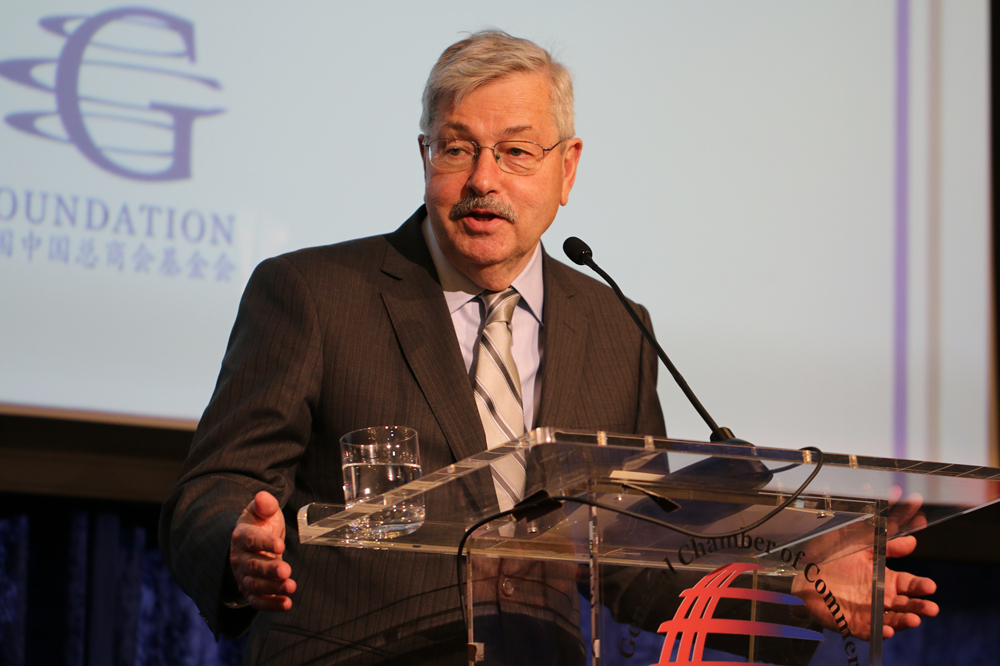'Mutually beneficial solutions' on trade preferred


US Secretary of Commerce Wilbur Ross said on Wednesday that he hoped China and the United States could make progress in resolving their trade dispute with "mutually beneficial solutions".
Ross spoke at a reception held by the China General Chamber of Commerce-USA to coincide with the SelectUSA Investment Summit, as a Chinese diplomat said Chinese firms are seeing a souring environment for investing in the US.
"I know that you're carefully watching the trade discussions between our two nations," Ross said. "We are hopeful that we can make progress and come to mutually beneficial solutions that help both of our economies grow."
The commerce secretary's remarks came a day after the Trump White House pressured China following US President Donald Trump's fresh tariff threat by issuing a policy document detailing what it alleged "China's economic aggression" threatening US technologies and intellectual property.
Ross, who was a key member of a US delegation visiting Beijing to negotiate with Chinese officials on bilateral trade early this month, said Chinese-affiliated companies had invested a cumulative $73.4 billion in the United States and directly employed 77,000 Americans.
"Increasingly, these companies are exporting goods back to China. This is a positive trend that can help address the bilateral trade deficit between our countries," he said.
He stressed that the US is committed to protecting intellectual property and ensuring there is a level playing field for trade, and addressing that will help both the US and China.
Earlier Wednesday, Ross formally opened the fifth SelectUSA Investment Summit in Washington.
The annual event brings together international companies, US economic development organizations and other stakeholders to explore job-creating investment opportunities across the US. At least 100 Chinese entrepreneurs are attending the event.
Terry Branstad, US ambassador to China, encouraged the Chinese delegation attending the summit to expand Chinese businesses' footprint in the US.
"There are economic development organizations from many United States states and cities across the country who are eager to help you pursue investment opportunities in their states and communities," Branstad said at the reception.
Asked by China Daily how he looked at the escalating trade spat between China and the US, the ambassador said, "We certainly hope that things can get worked out on the trade issues."
The top US envoy to China, who made his first media appearance in Beijing on June 28 last year, said he had a "good time" and enjoyed his stay in the country, which he first visited in 1984.
Zhu Hong, minister for commercial affairs for the Chinese embassy in the US, said the US policy environment has become a major consideration for Chinese investors.
Acquisitions and greenfield investments from China dropped by more than 90 percent in the first half of this year, to the lowest level in seven years, according to Rhodium Group LLC, a New York-based research firm.
"If, on one hand, the US hopes to attract foreign investors to invest more and expand local employment, but on the other hand, the US tightens investment restrictions, the chaotic message makes our investors feel at a loss," Zhu said.
The key is to solve problems through equal consultation, instead of unilaterally adopting trade protectionism, the Chinese diplomat said.
Dong Leshuo in Washington contributed to this story.

































